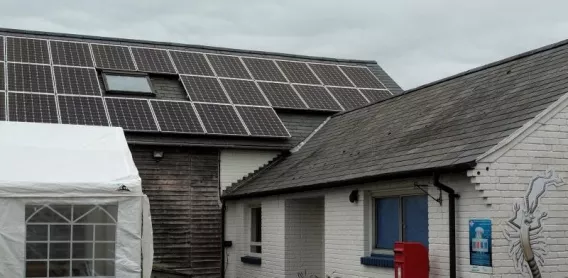Project
Rural communities face many barriers to reducing their emissions and this research will review national and international literature and reports to develop not only solutions, but workable solutions that can be implemented by rural communities. The Governments Energy White Paper and the updated Planning Guidelines focus on the role of community actions and support their development and implementation in transitioning to a low carbon society. This research will develop, test and revise a toolkit and blueprint for low carbon transitioning to assist communities to map out and systematically address strategies, targets, policies, measures and schedules. A guidance manual will also be developed to guide communities through the transitioning process by providing guidance on measuring, and mitigating CO2 emissions.
Rural communities face many barriers to reducing their emissions and this research will review national and international literature and reports to develop not only solutions, but workable solutions that can be implemented by rural communities. The Governments Energy White Paper and the updated Planning Guidelines focus on the role of community actions and support their development and implementation in transitioning to a low carbon society.
The research team has established relationships with international communities through their research activities (Prof. Glamuzina, Croatia) and international projects through the ZECOS research team and these existing overseas collaborators will further enhance research deliverables.
This project will develop methods to evaluate and assess the effects that rural communities can have on supporting Ireland’s transition to a low carbon society by developing solutions to support communities identify, measure and improve energy and resource efficiency at a local level. Together with policy and mitigation measures, the Blueprint, Toolkit of Best Practice Methods and a Guidance Manual will provide practical guidance to communities in planning and implementing strategies for low carbon transitioning. Environmental reviews, identification of sustainability and resource efficiency opportunities and development of appropriate indicator sets will support communities as they become energy and resource efficient. Data will be made available on SAFER and findings will be published as final reports and in peer reviewed journals. Best practice guides, methodologies and tools will contribute to National Policy and are particularly applicable to Ireland’s Transition to a Low Carbon Energy Future 2015-2030.
Research
This research team, headed by Dr Bernadette O’Regan and Dr Susan Byrne aim to provide Irish rural communities with the guidance and tools necessary to measure and track their progress towards lower energy consumption and subsequently lower CO2 and GHG emissions. Funded by the EPA, the team will identify resource and energy efficiency opportunities for rural communities and analyse community activities in other EU countries. The development of a standardised methodology and indicator set will provide an approach to measure and monitor progress at local level thus ensuring that communities can benefit from local resources and investment opportunities. The overarching idea is that communities will be able to apply the methodologies without the need of external expertise thus assisting them in competing for investment opportunities from green initiatives, grant schemes, and the training and development of community members.
Previous research has focused on a particular community or settlement with different methodologies applied to each. A consequence of this is the lack of communication and knowledge sharing between active community groups who are left feeling that they are acting in isolation and that their efforts are not significantly mitigating the effects that CO2 and GHG emissions have on climate change and sustainability. Pressures include the lack of clear guidelines, resources, such as indicators and measurement tools, and support agencies for community groups. Additionally community groups lack guidance with respect to clear, attainable targets for energy and resource efficiency and the expertise to evaluate progress. The identification and development of local policy levers will be essential to creating the right circumstance to support community transition.
This project will develop methods to evaluate and assess the effects that rural communities can have on supporting Ireland’s transition to a low carbon society by developing solutions to support communities identify, measure and improve energy and resource efficiency at a local level. Together with policy and mitigation measures, the Blueprint, Toolkit of Best Practice Methods and a Guidance Manual will provide practical guidance to communities in planning and implementing strategies for low carbon transitioning. Environmental reviews, identification of sustainability and resource efficiency opportunities and development of appropriate indicator sets will support communities as they become energy and resource efficient. Data will be made available on SAFER and findings will be published as final reports and in peer reviewed journals. Best practice guides, methodologies and tools will contribute to National Policy and are particularly applicable to Ireland’s Transition to a Low Carbon Energy Future 2015-2030.
Resources
